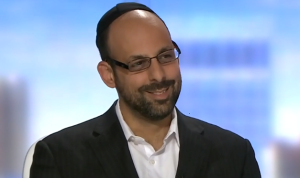by Shaya Silber
Students are known to be some the thriftiest creatures out there. Whether it’s soup in a cup or wine in a box, students are always finding ways to save some cash. One of the most commonly heard complaints from students is the exorbitant fees that they’re required to shell out for books and coursepacks.
One way to save cash, is to somehow bring down the cost of books. This leads many students to pitch in for one copy of a book, and make photocopies for everyone who pitches in.
While these students may be saving some money, they may also be infringing copyright law. Another question to consider is whether it is the students who are infringing the copyright, or whether it’s the photocopier/print shop, or both.
Fair Dealing is not Fair Use
In Canada there are some exceptions to copyright infringement. In certain circumstances, permission to use copyrighted works need not be obtained. These circumstances are referred to in the Copyright Act as “Fair Dealing”. This is not to be confused with “Fair Use”. Fair Use is an American concept and is the term referred to in United States copyright law. Generally speaking, the Fair Use exemptions are broader than what’s permitted in Canada under Fair Dealing.
Research or Private Study Exception
In the current version of the Copyright Act, there is an exception for “research or private study”. Obviously students would like to argue that copying works to further their education would fall into this category. Practically speaking however, it likely does not. For example, in Canada it is forbidden to make copies of a work for distribution in the classroom, in the absence of a special agreement or payment to the copyright owner. These agreements are typically arranged with Access Copyright, or a similar organization.
Access Copyright seeks to curb the illicit reproduction of copyrighted materials. Some print shops have received letters from Access Copyright demanding a halt to all illegal reproductions. These letters also seek payment of damages. Damages that are requested often go well into the tens of thousands of dollars.
This might change. Under the proposed amendments to the Copyright Act, “Education” is listed as an exception. Many groups, consisting largely of authors and publishers, are outraged at its inclusion. The main concern with the exception is that “education” will be interpreted too broadly. For example, does it apply strictly to schooling? Does it apply to education in the workplace, or any environment for that matter?
Will print shops be legally permitted to reproduce educational literature? Copyright owners, authors and publishers fear that any materials that is used in the furtherance of education will fall under this category, with no remuneration coming back to them.
The exception may be removed from the final version, or more likely, garnished with some qualifiers.



